The Financial Technology Report is pleased to announce our inaugural awards for The Top 25 Financial Technology CTOs of 2019. While CEOs are often celebrated as the key component to a company's success, the CTO also plays a most critical role serving as the backbone to ensure all systems operate effectively on a continuous basis. It is with a close eye on the technology itself and the impact each fintech platform has been able to achieve, that we evaluated the universe of chief technology officers in the financial sector.
We congratulate the following accomplished individuals who comprise The Top 25 Financial Technology CTOs of 2019 awards list.
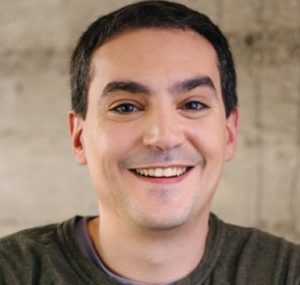 1. Ryan Graciano, Credit Karma
1. Ryan Graciano, Credit Karma
It was the idea that people should be able to access their credit and financial data for free that led Ryan Graciano and his other two co-founders to launch Credit Karma in 2007. As Chief Technology Officer, he designed the system and wrote the code that powers his company’s mission to disrupt the consumer finance market. Since the beginning, Graciano has been there to ensure that his company’s technological resources scaled with the demand that came with its rapid growth into a multi-billion fintech powerhouse that currently boasts 50 million members. Before becoming a technology entrepreneur, Graciano graduated from Georgia Institute of Technology in 2004 with a bachelor’s in computer science and worked at a small tech firm that was eventually acquired by IBM.
 2. Sri Shivananda, Paypal
2. Sri Shivananda, Paypal
Sri Shivananda is the Chief Technology Officer of Paypal and he is a strong believer that “successful leaders get good advice from everywhere.” He draws his inspiration from family and friends, leaders and colleagues, and mentors and authors. As an avid ‘reader’ of audio books – which he listens to at double-speed – he regards authors as important sources of insight. “It’s people I never meet but I get the opportunity to have a conversation [with] through their literature,” he said in an interview with the Wall Street Journal.
Shivananda received his bachelor’s degree in mechanical engineering from Jawaharlal Nehru Technological University in 1995 and a master’s degree from Ohio University in 1998. He started as a programmer at Ford Motor Company in 1999 and occupied various positions before making eBay his career home in 2002. From there, he ascended through the ranks before taking the vice president role at PayPal. Within the year, he was promoted to CTO and Vice President of Global Platform & Infrastructure.
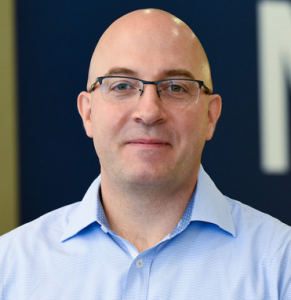 3. Carl “Boe” Hartman, Marcus by Goldman Sachs
3. Carl “Boe” Hartman, Marcus by Goldman Sachs
Carl Hartman bucked tradition when he was made partner at Goldman Sachs in 2018. Notably, he was one of only three people from the bank’s technology division to receive the promotion. Perhaps more importantly, he was also the only one from the institution’s retail arm to be welcomed into GS’s upper echelons. Hartman currently holds the title Chief Technology Officer and oversees Marcus – the firm’s online lending platform. In a Goldman Sach’s blog post, Hartman gives advice to his younger self: “Stay curious. Yes, ‘curiosity killed the cat’ but satisfaction brought her back. If there is one you need to remember AND never forget, it’s curiosity that is a superpower.”
Up to this point, Hartman’s twenty-year career has largely been focused on the retail end of business. He has served in various technology-oriented leadership positions at both Barclays and Capital One prior to joining Goldman Sachs’ Bank USA in 2017. He received a bachelor of arts, political science, from West Virginia University.
 4. Mike Reust, Betterment
4. Mike Reust, Betterment
Betterment is redefining the way people make investments and Mike Reust is there to make sure they have the right people and the right systems to make that happen. As Chief Technology Officer, he is in charge of a world-class engineering team that is dedicated to driving the tech engine behind Betterment’s success. Since joining them in 2013, Reust’s rise has been quick with yearly promotions progressing him to the position of General Manager and CTO by 2018.
During his tenure as engineering director, Reust was put in charge of revamping Betterment’s hiring process. He spoke about the importance of incorporating diversity and inclusion into the company’s hiring practices in a very real way: “There was a group of engineers who got together to talk regularly about diversity, and I sat down with them to talk about what we could do better. One of the more revealing questions I asked them was, ‘what could we have better communicated during the interview process that would’ve made your decision to join Betterment a no brainer?’”
Before Betterment, Reust worked as a software engineer for GE Infrastructure, Quantitive Risk Management, ZocDoc and eTapestry. He attended Rose-Hulman Institute of Technology and graduated magna cum laude with a bachelor of science in software engineering and economics.
 5. David Singleton, Stripe
5. David Singleton, Stripe
Belfast native David Singleton believes that where ever commerce goes, Stripe will never be far behind. As one of the fastest growing fintech companies in Silicon Valley, Stripe’s need for leaders that understand both software and start-up dynamics meant a search for top talent in a very competitive market. In 2017, they successfully courted Singleton to lead up engineering at the San Francisco-based headquarters. He understands that users should drive product developments and that is exactly what he asks his developers to do when doing their jobs.
Singleton is a seasoned leader in the tech industry. After graduating from the University of Cambridge with a degree in computer science, he did a brief three-year stint as a senior technical consultant with Symbian before joining Google in 2006. There, he worked on integrating voice search into their apps, led up development for Google Fit, and most recently, led the Android Wear team out of the internet giant’s London offices. Known as their “smartwatch king”, he challenged himself and his team to develop better solutions and made his mark on the wearable-tech industry.
“When you innovate, you really have to take risks; it’s important you try things you otherwise would not have in order to discover the ones that might have a lasting impact,” Singleton said in a 2018 interview.
 6. Joe Binney, Robinhood
6. Joe Binney, Robinhood
Joe Binney has been with Menlo Park-base Robinhood Markets since the beginning. Hailed as the next-generation investment platform approved by Millennials, Robinhood rolled out smartphone mobile apps that allows users to invest in publicly traded companies and exchange-traded funds on the US stock exchange without paying a commission.
Originally from Atlanta, Binney moved to the west coast to attend college and graduated with an MS in computer science from Stanford University in 2012. Following graduation, he started as a software engineer at Facebook before beginning his work as a product engineer at what was then a fledgling tech-firm – Robinhood. The risk paid off for Binney as he now leads his own team as vice president of product engineering. The company has experienced significant growth and now boasts over 3 million user accounts and has executed well over $30 billion worth of trades. Binney says that he and his company are now focused on building up their leadership team and pursuing new lines of business.
 7. Edward Kim, Gusto
7. Edward Kim, Gusto
Edward Kim’s first office was a Palo Alto walk-in closet he rented for $300. Kim and co-founders Josh Reeves and Tomor London started Gusto with the brave and noble goal of making payroll, benefits and HR less painful for smaller businesses. From those most humble beginnings, Gusto grew into a thriving company that serves over 60,000 businesses and employs 600 people – a hundred of which are engineers.
Kim’s first love is coding and much of his work in the early days involved designing and building the systems that make Gusto a market leader. As the company grew, so did the demands of being a people manager and Kim dedicated himself to become the best leader he could for his team.
Kim is Stanford-educated and armed with his newly-minted master of science in electrical engineering, began his career with a telecommunications company before moving on to Volkswagen of America Electronics Research Lab. In 2008, he founded Picwing – an online photo-sharing app – that was eventually acquired by PicPlum three years later.

8. Vladyslav Yatsenko, Revolut
Vladyslav Yatsenko may not be the public face of UK-based fintech Revolut but that hasn’t stopped him from trying to upend the European financial system. Launched in 2015 by Yatsenko and co-founder Nikolay Storonsky, the two former bank employees believed they could eliminate fees involved with foreign exchange transactions. The strategy? Bring as much of the payments processing infrastructure in-house as possible and cut out all the financial middleman. As CTO, Yatsenko has led the design efforts for Revolut’s award-winning tech platform that is bringing a next-generation banking experience to people around the world.
Yatsenko received a master’s degree in computer science from a Ukraine-based university and has spent the majority of his career developing financial systems for the banking industry.
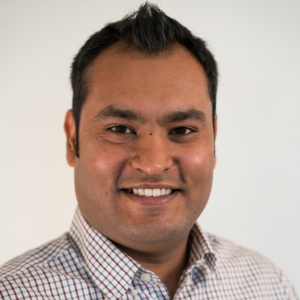 9. Shivaas Gulati, Remitly
9. Shivaas Gulati, Remitly
As an entrepreneur and an engineer, Shivaas Gulati has a passion for finding new answers to old problems. Fortunately for the many people who send money to loved ones around the world, he sees the problem with the high fees, unfavourable exchange rates, long wait times and few guarantees of safe delivery associated with cross-border money transfers.
Armed with an MS in information technology from Carnegie Mellon University and experience building digital platforms for businesses ranging from social change to travel booking, Gulati was ready to tackle the challenge of moving money. Together with co-founders Matt Oppenheimer and Josh Hug, Gulati launched Remitly – a mobile payments service that gives customers the ability to internationally transmit money to other users in the Philippines, India or the United States. As CTO, he played a key role in building the global payments infrastructure and backend systems that makes Remitly’s services possible for their customers.
10. Meri Williams, M onzo
onzo
Meri Williams is a chief technology officer, a self-proclaimed geek, an author and somewhat of a project management guru. She enjoys helping tech firms weather the storm of scaling up and is currently lending her CTO expertise to UK-challenger bank Monzo. In her role, she heads up engineering operations and leads a team of 100 staff members. In the first 15 months it had started trading with a full license, Monzo acquired 750,000 customers and shows no signs of slowing down anytime soon.
In her experience, Williams says that most companies can wrap their heads around how to scale systems and infrastructure but sometimes the people-side of things can be a little complicated. Even still, there are ways to smooth out the rough edges in any transition, she says.
“Every person is capable of virtuosity,” Williams shared in her 2018 Turing Festival talk. “Every role can be brilliant. Most people want to be good at what they do, so finding ways to help them be great at what they do is what our mission should be.”
 11. Chee Mun Foong, MoneyLion
11. Chee Mun Foong, MoneyLion
Chee Mun Foong is a co-founder and CTO of five-year-old fintech Moneylion – a mobile banking platform that offers lending, financial advising and investment services to customers. Originally based in New York, the firm was formed by tech specialists and investors who designed a unique system to evaluate variables and produce user recommendations and calculate risk. Foong personally led the team that created a scalable, high frequency loan underwriting system capable of analyzing thousands of data points of each applicant using analytics and machine learning algorithms.
Prior to his work at Moneylion, Foong was one of the founding members for Simulex, a research firm that focused on predicting human behavior through the use of artificial intelligence and advanced analytics. He has consulted with a number of Fortune 500 companies and several branches of the US Department of Defense on projects during his tenure, ranging from big data calculation and analysis to programming social science data into mathematical and algorithmic models.
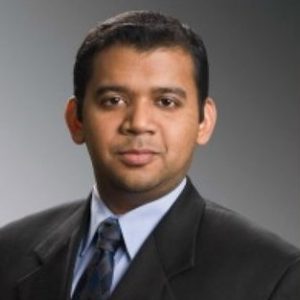 12. Kush Saxena, Mastercard
12. Kush Saxena, Mastercard
When Kush Saxena leads, others want to follow. He is Mastercard’s CTO and oversees the credit giant’s tech-focused teams and operations, mergers and acquisitions and company-wide digital transformation. While he is a tech-first, results-oriented professional with several years’ experience leading teams and a proven track-record of success, it’s his philosophy that “doing well while doing good” that sets him apart from the competition.
He received his master’s in management science from Stanford University and before his time with Mastercard, he worked for industry giants FICO, McKinsey & Company and H&R Block. He also cofounded an organization called Democracy Connect – a Wikipedia like platform that connects dispersed Indian populations with senior policy leaders to drive better informed policy decisions.
 13. Dhanush Hetti, Venmo
13. Dhanush Hetti, Venmo
Dhanush Hetti has only been Venmo’s CTO for a little over a year but he’s serious about making sure that he’s creating value for the company. He leads the effort to build an engineering organization that aligns closely with Venmo’s business strategy and brings their tech services and solutions to market.
In the world of peer-to-peer mobile payments, Venmo might just be king. It’s a popular app available on both iPhone and Android devices that makes it easy to split a dinner bill or cab fare home after a night on the town. It was acquired by Paypal in 2013 and Hetti joined Venmo after spending three years as CTO of the parent company’s In-store/Retail division.
He received a bachelor’s degree in computer information systems from Manchester Metropolitan University and certifications in management and strategy from MIT’s Sloan School of Business. He spent several years working in various software development and leadership positions before making Paypal his career home.
 14. Matt Tuzzolo, Blockchain
14. Matt Tuzzolo, Blockchain
For the last five years, Matt Tuzzolo has been working hard to make tech-startup Blockchain the go-to mobile app for bitcoin users. They want to make digital currency something that can be integrated seamlessly into everyday life and with very few options available to make that happen – it’s an ambitious undertaking. Fortunately for them, Tuzzolo was an early adopter and remembers pulling out his iPhone to pay with bitcoin back in 2013.
Blockchain was founded in 2011 to drive development of digital applications for the storage, spending and trading of cryptocurrency. The company started out with a virtual consumer wallet and has since expanded their offerings to include a cryptocurrency exchange market, a hardware-based ‘lockbox’ to secure a bitcoin stash and an api for software developers. As chief technical officer, Tuzzolo’s job is to ensure his team of engineers keeps Blockchain’s services running smoothly and look to the future for how they harness technology to expand into new areas. Prior to his work with the bitcoin service provider, he held positions with Virb and digital news platform Regulars that he founded in 2008.
 15. Iftah Gideoni, Forter
15. Iftah Gideoni, Forter
Israeli-born Iftah Gideoni is the Chief Technical Officer and General Manager for Forter, a provider of fraud prevention software for ecommerce-based businesses. Gideoni oversees the inner workings of Forter’s security platform and ensures the company is doing everything they technologically can to stay ahead of criminals.
Gideoni attended Tel Aviv University and graduated with a bachelor of science in physics before moving on to the University of British Columbia to obtain his master’s in physics. He noted that one of the ways he earned money for school was by cleaning bulk freighter ships docked at port. Gideoni has a diverse technical background with experience as a chief data officer and vice president of research & development with MyThings – an advertising company that specialized in personalized retargeting campaigns. He also worked for the Australian national research agency, CSIRO, where he led a portfolio of research projects.
16. Eric Chan, Bill.com
Eric Chan has been with Bill.com since the beginning. He was first hired as a principal engineer twelve years ago – just five months after the company’s founder, Rene Lecerte, launched his web-based workflow and payment processing business from Palo Alto, California. As the company grew, so did Chan’s role; he took on new responsibilities as a software architect in 2008 before moving into current position as CTO in 2012.
In his own words, Chan sees that Bill.com as a SaaS company goes beyond offering an online space for customers to park their data. “We don’t just live online – we impact traditional business by integrating your systems and banks, connecting your vendors, customers and employees to you by bridging the digital and analog world.”
Prior to Bill.com, Chan spent seven years as a senior member of Salesforce’s technical staff and fourteen years in leadership roles with XPrep Learning Solutions. He received his bachelor’s in computer science from the University of California, Berkeley.
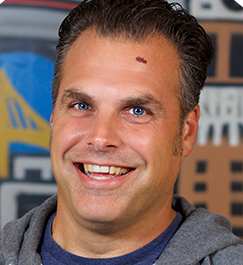 17. Tony Ford, Marqeta
17. Tony Ford, Marqeta
Tony Ford is the Chief Technology Officer of Marqeta, an open API provider that offers developer-friendly options to simplify the management of payment programs. He is responsible for the business’ long-term tech strategy and uses his passion for finding creative IT solutions to customer problems as a guide for his vision. “Innovation needs to speak for itself. It’s about looking at the world as it is and figuring out what else can be done – what else can be better,” he said.
Prior to joining Marqeta in 2013, Ford spent years focusing on building web applications and video game tools for IGN Entertainment and Team Xbox. He began his career building websites and tools that connected gamers after graduating from the University of Arizona with a degree in computer science.
 18. Satheesh Ravala, Ellie Mae
18. Satheesh Ravala, Ellie Mae
People may dream about owning a home but it’s not likely they feel the same way about the mortgage that comes with it. Home financing is a complex, multi-step process with several moving parts that are interdependent but not always in sync. EllieMae was founded in 1997 to simplify that process and since then, they have built an industry-leading, cloud-based platform to originate and fund new mortgage loans and ensure compliance.
Behind the operation is Satheesh Ravala, the Chief Technology Officer who oversees EllieMae’s private/public cloud infrastructure, cloud platform services, service reliability, performance engineering, DevOps, data services, and NOC. Prior to EllieMae, Ravala spent thirteen years at Yahoo working his way up through the ranks. By 2011, he had accepted a senior leadership position to head Yahoo’s Infrastructure division before moving to their Cloud Platform division.
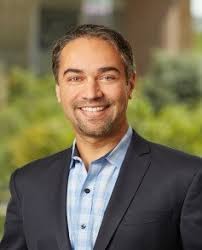 19. Arjun Dugal, Capital One
19. Arjun Dugal, Capital One
As one of the largest financial institutions in America, Capital One would naturally be very selective about who they chose for their senior leadership. A recent addition to their C-suite team is Arjun Dugal who currently serves as the chief technology officer for Capital One’s financial services division.
The Indian-born tech professional received a bachelor’s degree in electrical engineering from Pune University and a master’s in management and operations from Harvard University. From there, he spent a large part of his IT career working in the consumer-facing retail space with Fortune 500 companies including Staples and Macy’s. Dugal gives his time to charitable causes and holds a board position with Girls Inc. – a non-profit that empowers girls – as well as co-founded an organization called Dream a Dream – an agency dedicated to supporting at-risk children.
 20. Michael Manos, First Data
20. Michael Manos, First Data
As global Chief Technology Officer for payment processing giant First Data, Michael Manos literally runs the tech world. The company provides payment processing for debit transactions and serves 14 million merchants spanning the globe – they process $2.2 trillion in card transactions domestically ever year and are the biggest player in the payment industry. He oversees delivery of credit and debit card issuing, payment processing, transaction tokenization, and point of sale security platforms across 119 countries.
Before joining First Data, Manos served as CTO for AOL Services. He also held other senior leadership positions with large well-known corporate enterprises such as Nokia, Microsoft and Walt Disney Internet Group. He earned a bachelor’s in computer science form the Illinois Institute of Technology.
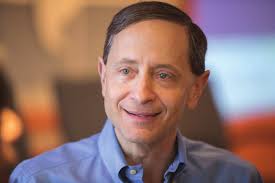 21. Marc Gordon, American Express
21. Marc Gordon, American Express
Marc Gordon is American Express’ Chief Information Officer whose longevity in the technology field has prepared him well from the demands of the position. Prior to taking up the mantle of CIO of American Express, he held a CIO position with Bank of America (consumer banking and enterprise banking) and prior to that, carried the same title with both Best Buy’s supply chain division and clothing company Timberland.
In addition to his work in both the retail and financial sectors, Gordon has advised several government departments on cybersecurity and emergency preparedness. He has also served on the US National Security Telecommunications Advisory Committee, by presidential appointment.
 22. Guido Sacchi, Global Payments
22. Guido Sacchi, Global Payments
Dr. Guido Sacchi has been Global Payments' Executive Vice President and Chief Information Officer since 2012. He is an experienced IT professional who balances the importance of thinking strategically with delivering results on a strict timetable. As CIO, his responsibilities include IT strategies, worldwide technology infrastructure and operations management, application development and support, information security, customer experience, project portfolio management, platform integration and worldwide product.
Prior to joining Global Payments, Sacchi held the position of managing director with Slalom Consulting where he headed up the firm’s Digital Commerce Practice. He also served as CEO for online payments company, Moneta, and as CIO & SVP of corporate strategies for CompuCredit, a direct marketer of credit card and other fee-based credit products. Sacchi received a PhD in engineering from Politecnico di Milano.
 23. Jacob Dai, Airwallex
23. Jacob Dai, Airwallex
Jacob Dai is a self-proclaimed serial entrepreneur who specializes in cyber-security, neurotechnology, machine learning and big data. He received both his bachelor’s and master’s of engineering (software) from the University of Melbourne and started his career as a team leader with e-payment platform provider, Grasp This, before leaving to start a series of tech businesses that ranged from language translation applications to automatic image processing systems.
In 2015, Dai and co-founder Jack Zhang launched Airwallex, a global payments platform that allows users to collect currency, exchange funds and move money across borders with minimal fuss. As the Chief Technology Officer, Dai is responsible for deciding the direction of the firm’s technology.
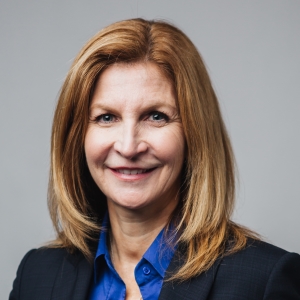 24. Patricia Watson, TSYS
24. Patricia Watson, TSYS
As Senior Executive Vice President and Chief Information Officer of TSYS, Patricia Watson is the tech guru that is guiding the company’s digital transformation. Being an architect of tech-change is not for the faint of heart but Watson is fully embracing the challenge to bring the credit card payment processor into the 21st century.
Prior to her work with TSYS, Watson spent 17 years in senior leadership positions with Bank of America and the Brinks Corporation and ten years with the US Air Force as an acquisition program manager. She graduated from the University of Dayton with an MBA and from Saint Mary’s College with a bachelor’s degree in mathematics.
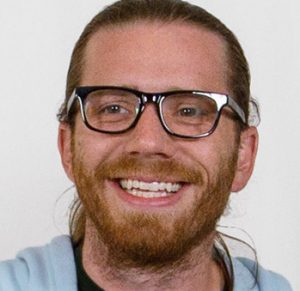 25. Brandon DeWitt, MX
25. Brandon DeWitt, MX
Brandon DeWitt is the Co-Founder and Chief Technology Officer for MX, a company that specializes in data aggregation for the financial sector. They help financial institutions and fintech companies collect and analyze their data – transforming their disparate information into actionable insights. He believes that the future of banking and technology will evolve into something bigger and better.
“I think we’ll see financial services and banks be in the center of conversations about how people find jobs and optimize their income,” DeWitt said in an interview. “They’ll say, if you want to continue to optimize your investing and savings, here are opportunities for you to participate in the gig economy in your area – outside of your day job.”
Prior to his starting MX, DeWitt led software development teams with Experian’s Baker Hill and their analytics division. He received his bachelor’s in computer science from Illinois State University.
























